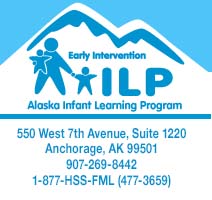Pardon Our Progress! We’re working hard to improve our website. Some information may not be the most current during this process. Please use the contact information on the website for assistance.
Page Content

Developmental Checklist: 6 - 9 Months
Things Your Baby May Do At This Age
- Sit up without help
- Stand up while holding onto your hands; stand up on your lap and bounce
- Fuss if you take something away from him
- Recognize a familiar voice
- Eat a cracker by himself
- Play pat-a-cake; play with hands and feet
Safety First!
- Cover unused electrical outlets with plastic inserts.
- Lock away cleaning products and medicines.
- Make sure he or she can’t pull things over on themselves.
- Pick up small items that could choke her.
- Keep the bathroom door closed and the lid down on the toilet.
- Place child safety latches on drawers and cabinet doors.
- Tie window cords up out of reach or use tie-downs to pull cords tight.
- Watch your baby carefully! Major accidents can occur in seconds so don’t leave him or her unsupervised.
- Never leave open buckets of water out as your baby could tumble into the bucket head first.
- During this time your baby is continuing to learn about his world. He will probably start to crawl around and may pull up on furniture. Make sure his world is safe.
- Car seats should be used at all times and should be rear-facing in the back seat until the child is both over one year of age and over twenty pounds.
New Experiences
- Provide cloth or cardboard books for your child.
- Being able to read and communicate begins now!
- He may be afraid of strangers and not want you to leave him. If you must leave him, remember to say “good-bye” and remind him that you will come back. He still has to learn that objects-out-of-sight will appear again.
- If you need child care, be sure that your child receives quality care. Your child’s caregiver should be providing age appropriate activities for your child as well as a safe and loving atmosphere.
Games You Can Play With Your Baby
- One, Two, Buckle My Shoe
- Peek- a – Boo
- This Little Piggie Went to Market
- Pat-a-Cake
Health Hints
- After meals, first teeth can be wiped with a clean, damp cloth or brushed with a very soft, tiny infant toothbrush moistened with water.
- Well Baby Check-ups: 6 months, 9 months.
- Immunizations at 6 months: DTP, PCV and HIB. (Possibly Hepatitis B, depending upon type of vaccine your doctor or nurse uses)
Nutrition Notes
- Your baby can start to drink from a cup.
- He can eat four or more tablespoons of iron-fortified cereal a day, one to four tablespoons of strained vegetables and fruit a day, as well as cottage cheese and strained meat or egg yolks.
- She can drink fruit juice from a cup (limit juice to 2 – 4 ounces a day – that’s about ý cup.) When your child’s cup is empty, refill it with water.
Things You Can Do Every Day To Help Your Baby Grow
- Read to her daily. Show her pictures in books and point to and name the people, as well as other things in the picture books.
- Roll a ball to your baby. As your baby grows and gets used to the game, he or she will try to roll the ball back to you.
- Hide a ball or other object under a blanket while your baby is watching you and let him or her find it. Your baby will learn that objects out-of-sight don’t disappear forever.
- Give your baby a metal pan and show her how to bang on it. Let your baby have fun making the sounds.
- Place your baby on the floor on his or her stomach. Encourage him or her to move toward you by clapping your hands and laughing. Crawling is needed to develop other skills.
- Place Cheerios on baby’s highchair tray and let baby practice picking it up and putting it in his or her mouth. Baby’s eye and hand muscles will get strong and begin to work together.
- Let baby practice dropping unbreakable things like soft balls over the side of the bed or high chair in order to learn what happens when he or she drop something.
